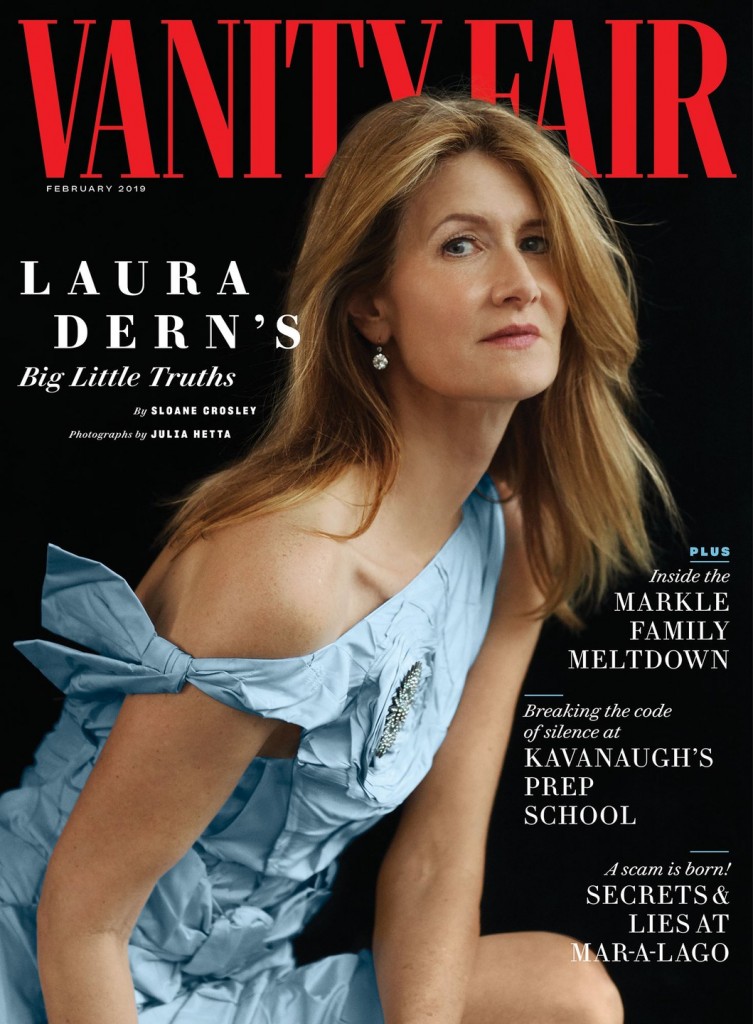
The lovely Laura Dern is covering Vanity Fair. While reading the interview, I was struck by how vulnerable celebrities are to the journalists who do in depth profiles. Esquire in particular used to just trash their cover subjects. Several writers did that so it must have been an editorial decision. In this case the writer, Sloane Crosley, was gradually won over by Laura, but not before she made some cynical observations about her and at least one ill-advised comment. As Kaiser has pointed out, VF has really taken a turn for the worse since editor Graydon Carter left.
Laura is getting the most press for her comments on #MeToo and how she had some close calls as a teenager in the industry. (The Tale on HBO, in which she stars, tells the story of a woman looking back at a teenage sexual experience and realizing that she was raped by a much older man. This is a real story that happened to the screenwriter, Jennifer Fox, and parallels Laura’s experience as a teen.) So Laura has talked about being sexually assaulted as a teen. In this interview she alluded to her experiences, saying she’d had some close calls. The writer interjected her opinion about it. It came across like judgy garbage frankly, and while Sloan may have thought it was ok to say in context it does not read well. Here’s that part:
“I started making movies as an 11-year-old, so I was on location at 13, which is a different thing. I remember every compromised situation,” she says. “I was a child, and adults took advantage of me or tried, and I justified the behavior as me misunderstanding it.”
This leads to a discussion of the necessity of Time’s Up, #MeToo, and beyond. But as important as all this awareness and change is, from personal safety to equal pay, she’s also aware that the hashtags can put undue pressure on assault survivors to join the chorus. Those who stay silent can feel self-conscious or cowardly. “No one has to speak about their experience,” she says. “It’s also remarkably brave to sit in your own home and look in the mirror and say: this is the truth of what happened. I will tell you I experienced everything barring assault. I mean, there were a million of these circumstances where . . . What director or casting director needs a 13-year-old to go to the Chateau to audition in a room, sitting on a bed beside the director, to read a scene together alone? You just don’t create that scenario. There was behavior that was definitely the worst kind of behavior that somehow I got myself out of or someone stopped it.”
“Or,” I posit, “it happened because you were protected and these men were testing their limits.”
“My dad killed John Wayne,” she quips. “He might kill you, too. The tragedy of my life is that when things were in the gray, I didn’t know they were wrong. I didn’t know I was entitled to say something as simple as ‘I feel a little uncomfortable. Can someone else be in the room?’ or ‘No, I don’t want to come with you to get a book you’re going to give me as a wrap present in your hotel room.’ Or, you know, that ultimate grooming line for young girls . . .”
“What’s that?”
“‘I see you, and I understand you like nobody else does.’”
Why did VF leave that line in from the interviewer, about Laura being protected? It can be interpreted as saying her experiences don’t matter or that they weren’t ever going to reach the level of assault. It may have been meant as a harmless observation, but as an editor I would have cut it. I really like what Laura said about how it’s brave to face your own truth, whether you chose to come forward or not. I truly believe that, and not enough people are saying it.
The rest of the interview involves a visit to the Academy Museum of Motion Pictures, currently under construction and slated to open later this year. Laura is heading up fundraising. I’m so going to visit once it’s open! I just got a bad feeling from the piece, as if someone had an agenda against Laura they couldn’t quite fulfill, because she was perfectly nice and accommodating. Maybe I’m just such a fan that I couldn’t be so objective about her. My only response to someone telling me that they had close calls as a teenager would be to say how awful that must have been.
Photos credit: Vanity Fair, Getty and Avalon.red

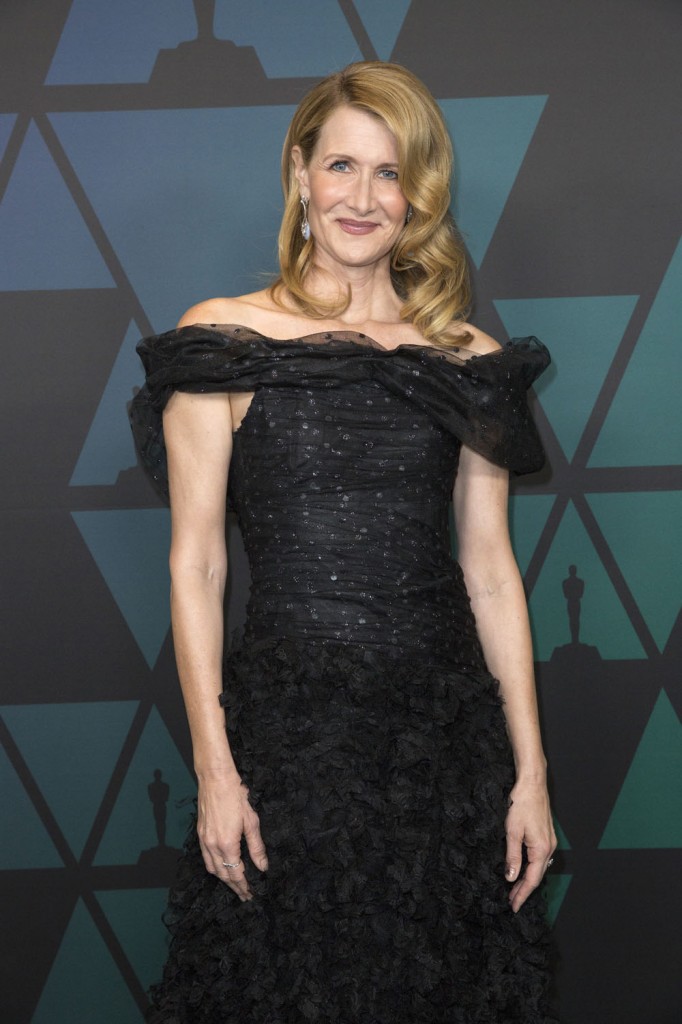
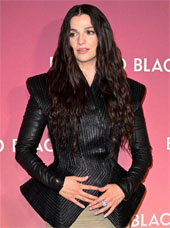
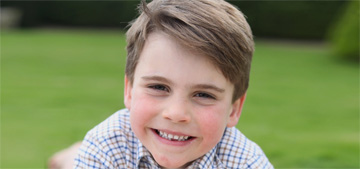
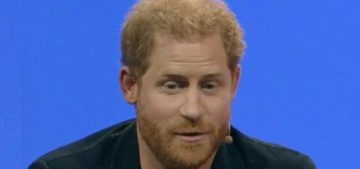
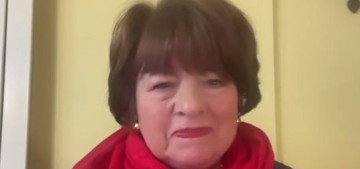

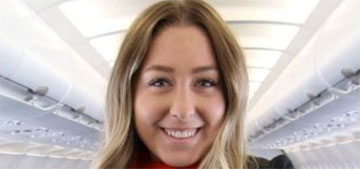




Yeah that’s a gross and unnecessary comment from the reporter. the editor should have cut that. It trivializes and demeans what Laura is saying. and what she is saying IS important. Just because someone isn’t coming forward with #metoo doesn’t mean they don’t have experiences of their own. Everyone processes incidents differently and while I think its important that #metoo has “allowed” so many women to feel like they can come forward safely – it doesn’t mean that women have to.
The trend of people feeling it’s ok to decide or insist that a female public figure must have been sexually abused in the beginning of their careers when she hasn’t said so is also a gross and unnecessary thing that needs to die, regardless of the age someone was when they got in the industry. We have to remember that girls and women who are in the public eye are people, not fictional characters, and that our treatment of them doesn’t exist in a vacuum separate from the way other women and girls are treated and what they experience. #MisogynyKills
To add to that and to what you said about everyone processing incidents differently, we also need to treat all types of people coming forward with #MeToo stories with equal dignity. Currently, our patriarchal conditioning is such that masculine, heterosexual cis male public figures and classy, sexually modest heterosexual cis female public figures are the only two categories of people who can come forward with #Metoo stories without people deciding that their sexuality and the way they present themselves is a symptom of them Not Knowing Any Better because of their abuse. That’s inequality.
Let’s make 2019 a better year.
@otakufairy, Honestly, I am very incredulous that any woman in the entertainment industry would not have experience with being sexually harassed and/or abused. I have never met any woman who has not been, over the age of 18, and most women I’ve talked to about it have never met any woman who hasn’t been. I find it essentially a 0% chance that a woman in Hollywood has not been sexually harassed. At the very least, there has been massive discrimination on the basis of gender – Jennifer Lawrence is a great example, as her partner for the shooting of Red Sparrow demanded she ignore injury, and this was not challenged by anyone on set. That certainly seems to suggest an internalised misogyny, and it’s hard not to think this is very much shaped by the environment around sets.
I believe that this is in no way the fault of anyone who experiences this sort of harassment and belittling. But the passing off of stories like this as if they’re not abusive, not dangerous, toxic or entirely designed to belittle and demean wreaks of internalised sexism, which is, at least to my mind, a very big indicator of having been exposed to and/or experiencing this kind of harassment regularly.
At the same time, I think if any woman actually called out every single incident of really abusive sh*t that happened to them, they’d be out of a job very quickly, no matter what industry they were in.
That’s understandable. Misogyny and sexual harassment come in a lot of different forms. It seems like only a few of the women I know have said they’ve never experienced any form of sexual harassment at all, and I have too. It wouldn’t be surprising if most women who have been public figures long enough have also experienced some form of that or other types of toxic misogynistic behaviors like what you described- either from other people in the industry, from people outside of the industry, or some combination of both. Pointing that out like you did isn’t crappy or dehumanizing at all.
Not all women have experienced sexual abuse though, and so far, I haven’t yet either. With women who grow up in the public eye though, people specifically have a tendency to feel free to assume that they’ve not only definitely been molested or raped, but that any success and exposure they achieve must be because they were being molested and raped. This problematic trend is so out of hand that people are willing to take rumors from sleazy, unethical, and at times even anonymous sources and run wild with them rather than listening to women themselves. Especially if it means listening to and affording basic dignity to famous women they don’t like, or who are just either too young, too successful, too unchaste, too feminine, too flawed, or too anything else for them to respect or take seriously. This damaging and violating pattern of behavior is a problem on both sides too, sadly.
I don’t consider a 13 year old who ends up in a hotel room alone with a director protected and I find it difficult to believe that anyone would. So, I think it was meant in a “wow you ended up in those situations even though you were fairly well protected” kind of way. At least I hope that’s what she meant, but obviously expressed it very poorly.
What she says here is so true and important, and sometimes I feel like we can be prone to forget it, regardless of our good intentions. Obviously speaking up is a great thing, but you have to feel like you’re able to do it, without feeling forced or obligated.
Completely agree. Every victim is entitled to their own path toward healing and coping with their trauma. I remember telling my first boyfriend after I was assaulted in college about my trauma and he asked why I didn’t report it. He said it would have been the “brave thing to do.” It made me feel more shame than I already did as if I were responsible for my perpetrator’s behavior. I admire all the women that have come forward and demanded accountability and refuse to be silent. They all were subjected to backlash and called liars and other vile names. I equally admire all the victims who are brave for simply keeping going and those who feel too broken to get out of bed. I appreciate Laura Dern acknowledging this. Victims need to be reminded of their worth regardless of if they stay silent or come forward.
It’s true that experienced predators might test boundaries and levels of parental oversight before committing to fully act on their plans… but that observation in the context of the interview is at the very least badly timed and badly expressed. It could have sparked a more meaningful conversation on the modus operandi of sleek Hollywood predators, but instead it reads somewhat as “nothing reeeeally bad happened to you, right? You’re not one of those victim victims, you were PROTECTED!”
Badly judged on the editor’s part. And thanks CB for pointing it out.
I really don’t like calling out other writers, I know it’s a tough business, especially when you work online and publish every day, but this was a long piece in a magazine. There’s no excuse.
And yet having fathers in the business did not protect Mira Sorvino, Angelina Jolie or Gwyneth Paltrow. The writer was wrong. and Laura handled it beautifully.
Those were the 3 I thought of instantly as well.
It’s really sad to see what our society has turned into. It’s like if something isn’t done publicly, then it never happened. No victim is required to talk about their experiences to anyone if they choose not to. And they’re certainly not required to talk about them publicly if they choose not to.
Also no one in the industry was protected as was evident when the Harvey Weinstein incident broke open.
I agree with her. The choice to speak publicly is up to the indiviual.
And yes, the line or variations of it “I see you, I understand you like no one else does” is often used on young or vulnerable people. Some can read a persons emotions very well and they use this to control/groom to get what they want.
Laura Dern is been involved in the business her entire life, she has probably got plenty of stories/experiences. In short seen it all.
Talented actress.
I love what Laura said and agree that the comment by the reporter was wrong. Beyond that, though, I don’t get the bashing of VF. Under Graydon it was way too white (I’m old enough to remember when Halle and Denzel won Oscars and boycotted Graydon’s post Oscars VF party because he never put a person of color on the cover). Since he’s left we’ve had Lena Waithe, Kendrick, and Lin-Manuel (although I know that article is bad). And not one Jackie or Marilyn cover! So that seems like an amazing improvement. And I like their online political coverage too. So I’m not sure what I’m missing.
Graydon Carter was editor when a lot of awful profiles were written, some of them downright nasty. I still remember the Biskind hatchet job on Michelle Williams after Heath Ledger died. MW wasn’t interviewed by them again until after Carter left, I believe. So yeah, he was problematic in many ways. He was smart to leave, though; magazines are all dying.
Yeah I thought there had been some improvements, at least in the diversity of their cover subjects, since he left.
I haven’t read it in ages though, I used to enjoy it years ago but then they started piling up and it felt like a chore to get through them.
I don’t understand how Laura’s parents could even *LET* their 13-year-old daughter go into a hotel room, unaccompanied, for a solo audition with a much-older male director. I know it was 40 years ago, or whatever, but didn’t her mother think, hmmm, maybe this isn’t a good idea?